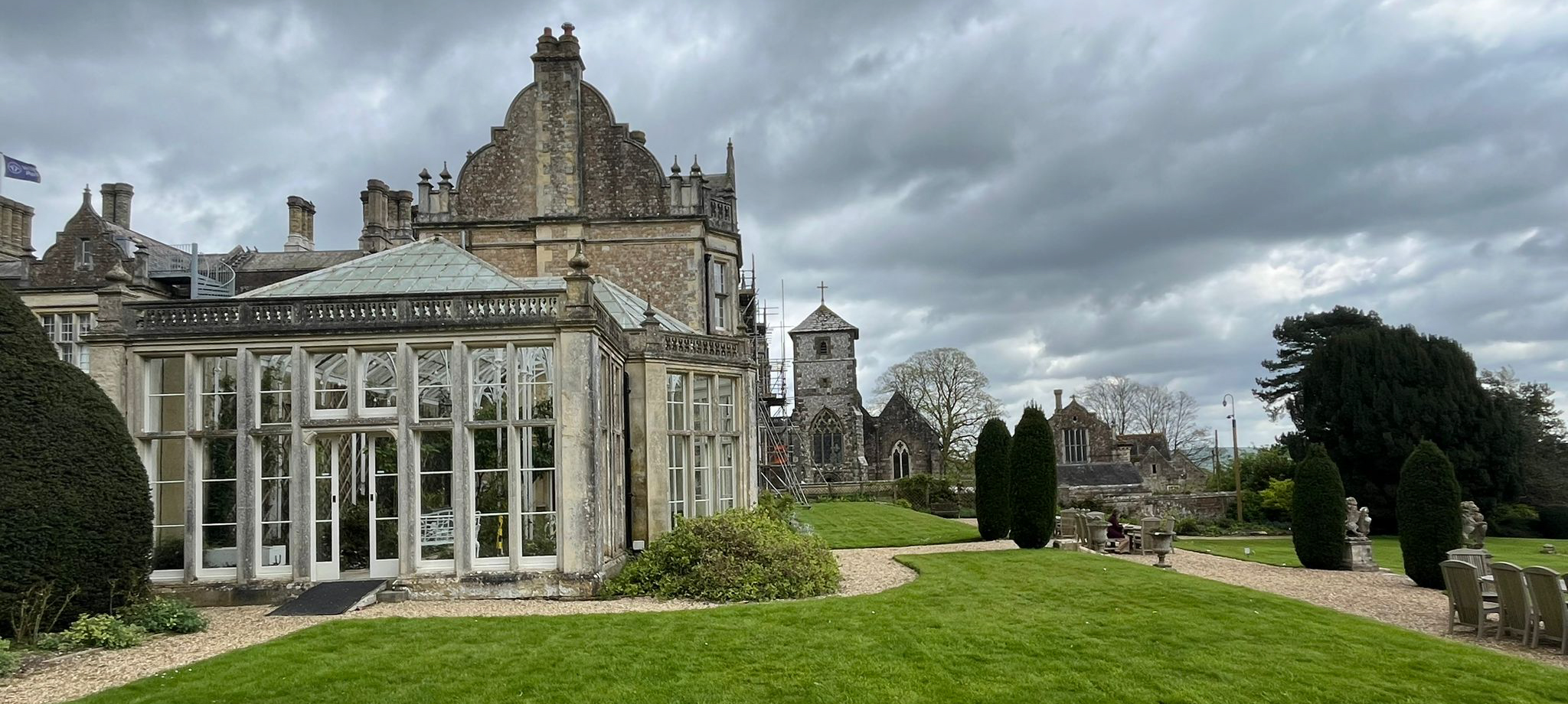Insights from Wilton Park: Navigating Gender Policies and Practices in Today’s Global Landscape
Inclusive Peace’s Founder & Director Thania Paffenholz, recently attended a conference at Wilton Park on the role of gender in conflict. The conference provided a reminder of the necessity of collaborative efforts to achieve gender equality and pathways toward inclusive societies.
In late April, I had the privilege of attending a conference at Wilton Park, co-hosted by the UK government, focused on Gender in Conflict. This gathering was not just another gender conference but a melting pot of perspectives from diverse backgrounds.
The conference participants had varied backgrounds as established players in the WPS arena, representatives from Southern governments, policymakers, grassroots activists, civil society representatives, and military sectors, each bringing a unique lens to the table of gender dynamics in our world today. This diversity of perspectives underscored the need for differentiated approaches to gender in different political situations.
One of the resounding agreements from the conference was the acknowledgment of two primary challenges facing the WPS agenda: the insufficient implementation and effectiveness of existing measures, and the looming threat of the agenda being sidelined in a new geopolitical landscape where Western influence is waning. In light of these challenges, it becomes imperative to chart a course that ensures gender-sensitive work is not just a checkbox but a meaningful, ingrained practice that can withstand the current backlash.
As the world evolves and traditional peace processes give way to more localized and complex dynamics, our strategies must adapt accordingly. Whether it is navigating closed authoritarian spaces like Afghanistan or broad-based national dialogues like Ethiopia, the advocacy and practice of the WPS agenda must be tailored to provide nuanced and relevant answers.
The conference also served as a platform for challenging stereotypes and rebranding gender. Instead of pigeonholing women into traditional roles as good at the grassroots, participants emphasized the importance of recognizing their agency and leadership across all aspects of peacebuilding.
Similarly, the concept of menstreaming highlighted the significance of involving men in the conversation, recognizing that gender equality is not just a women’s issue but a societal imperative. By moving beyond superficial labels and marketing, we can foster more inclusive societies where gender considerations are ingrained rather than treated as an afterthought.
A recurring theme throughout the conference was the importance of collaboration and empowerment. Involving military and security actors was identified as crucial for comprehensive and effective peacebuilding efforts. Similarly, support for women’s organizations and prioritizing protection against gender-based violence emerged as key priorities. By nurturing leadership champions, fostering innovation partnerships, and securing multi-year funding commitments, governments can take meaningful steps toward advancing gender-sensitive work. Embracing a critical friend approach that encourages openness to critical feedback and gender audits is essential for refining strategies continually.
Here are some key takeaways that emerged from the discussions:
- Differentiated Approaches: The evolving nature of peace processes demands tailored and nuanced approaches to gender advocacy and practice in diverse political contexts.
- Changing Narratives: It is essential to move beyond stereotypical narratives and focus on the actions and actors needed to end violence and build inclusive societies.
- ‘Menstreaming’: Involving men in the conversation on gender equality is crucial, recognising that it is a societal imperative.
- Rebranding Gender: Shifting away from superficial labels and marketing gender differently can help broaden its appeal and impact.
- Collaboration with Military and Security Actors: Engaging with these stakeholders is vital for comprehensive peacebuilding efforts.
- Empowering Voices: Support for women’s organisations remains central to advancing gender-sensitive initiatives.
- Prioritising Protection: Legal frameworks to combat gender-based violence are essential for pushing the agenda forward.
These findings from the Wilton Park conference provide a road map for navigating gender policies and practices in today’s global landscape. In a world where power dynamics are always altering, protecting gender considerations is about more than simply effectiveness. It is also about preserving our societies’ integrity in the face of crises and geopolitical threats.

